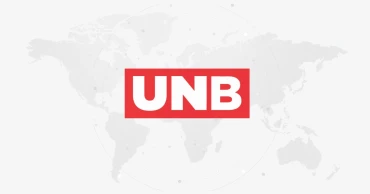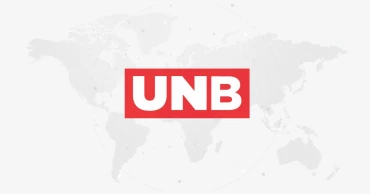UNHCR
UNHCR Goodwill Ambassador Tahsan visits Cox's Bazar Rohingya camps
The UN refugee agency (UNHCR) Goodwill Ambassador Tahsan Khan Sunday visited Cox's Bazar and met with Rohingyas to learn about their experiences on World Refugee Day.
The theme of this year's World Refugee Day is "together we heal, learn and shine." During Tahsan's visit to the Rohingya camps, he also met with Rohingya musicians and filmmakers and performed a song with them.
"These young filmmakers from Omar's Film School and these talented Rohingya musicians are doing incredible work to shine a light on the Rohingya culture and heritage through music, photography and film. They are also working tirelessly to raise awareness about Covid-19 and other health messages," said Tahsan.
Also read: Bhasan Char much better than Cox’s Bazar camps: UNHCR
4 years ago
Govt. urges international community to do more for Rohingyas
The government on Sunday called on the international organisations including the UNHCR to be more active to ensure all inhabitable arrangements and fundamental rights for the Rohingya people forcibly displaced from Myanmar.
Prime Minister’s Principal Secretary Dr Ahmad Kaikaus made the call at a meeting with Ambassadors, High Commissioners and Heads of delegations of various international organizations held at the Prime Minister’s Office.
Dr Ahmad Kaikaus presided over the meeting that was convened to discuss the issue of Rohingya issue, deputy press secretary to the Prime Minister KM Shakhawat Moon said.
The meeting was informed that the government has taken initiative to shift more 80,000 Rohingyas staying at various camps in Cox’s Bazar to Bhashanchar within the shortest possible time.
READ: 2 Rohingyas killed in landslide at Rohingya camps
In this regard, the meeting was also informed that more than 18,000 Rohingyas have already been taken to Bhashanchar, while process are on to shift more Rohingyas soon.
At the meeting, the principal secretary said that the government is doing everything possible to ensure all basic needs of the Rohingyas including better liveable places for them.
PMO Secretary Tofazzal Hossain Miah and Secretaries concerned attended the meeting.
READ: NUG must appoint an ethnic Rohingya envoy to implement new policy: Fortify Rights
Besides, Ambassadors and High Commissioners of various countries including USA, UK, Japan, Australia, France, Canada and the Netherlands as well as Heads of delegations of international organisations like European Union and UNHCR joined the meeting.
4 years ago
Voluntary Rohingya repatriation in short term looks more challenging: UN
The United Nations has urged the international community to step up and share responsibility, noting that recent developments in Myanmar make the prospects of voluntary repatriation of the Rohingyas to Myanmar in the short term more challenging.
"The responsibility for the current Rohingya refugee situation in Bangladesh rests with Myanmar, and that’s where the solution lies," said the UNHCR, the UN refugee agency, at the conclusion of its two senior officials four-day visit to Bangladesh.
UNHCR Assistant High Commissioners for Protection and for Operations -- Gillian Triggs and Raouf Mazou -- wrapped up their visit on Wednesday and called for international support and solidarity with Rohingya refugees and Bangladesh.
UNHCR called on the international community, including through the recently launched 2021 Joint Response Plan, to continue to support the government of Bangladesh who have taken on a huge responsibility in hosting almost 1 million Rohingya refugees in the largest refugee camp in the world. "This must not become a forgotten crisis."
"While Bangladesh has shown humanity and solidarity, in line with the guiding principles of the Global Compact on Refugees, the international community must step up and give practical effect to the obligation to share responsibility, and to protect refugees and support the host Bangladeshi Government,” said Triggs.
Throughout the visit, the UNHCR Assistant High Commissioners reiterated their sincere appreciation to the government and the people of Bangladesh for their humanitarian spirit and generous hospitality towards Rohingya refugees as they sought protection from violence and persecution in Myanmar over decades.
Read:UNHCR seeks adequate medical assistance for Rohingyas affected in Bhasan Char
4 years ago
Bhasan Char much better than Cox’s Bazar camps: UNHCR
UNHCR, the UN refugee agency, on Wednesday cleared its position regarding protection and assistance towards Rohingyas both in Cox’s Bazar and Bhasan Char, saying that they will continue to be present in various places around the country indicating the inclusion of Bhasan Char.
“The government has made a very important investment in Bhasan Char. Bhasan Char is a much better (place than Cox’s Bazar camps),” Raouf Mazou, UNHCR Assistant High Commissioner for Operations, told reporters after their meeting with Foreign Minister Dr AK Abdul Momen here.
Read:UNHCR seeks vaccinations for refugees in Asia, including Rohingyas
He said they are with the government of Bangladesh and they always work with the government. “We’re present in Cox’s Bazar. We’ll continue to be present in various places around the country and will work with the government to ensure assistance to refugees.”
Raouf said anybody may feel isolated in Bhasan Char but they must have economic activities apart from education and healthcare facilities.
Gillian Triggs, the Assistant High Commissioner for Protection, said they are here to work and support the government in ensuring the protection of these Rohingyas.
Read:Fully cooperating with ICJ to “ensure justice” for Rohingyas: NUG
4 years ago
UNHCR seeks vaccinations for refugees in Asia, including Rohingyas
UNHCR, the UN Refugee Agency, has sought stronger global support for refugee vaccinations in Asia, including Rohingyas who are living in Bangladesh.
In Cox’s Bazar, where almost 900,000 Rohingyas are living in the single largest and most densely populated cluster of refugee camps in the world, the number of cases has increased considerably in the last two months, said the UN agency.
As of May 31, there have been over 1,188 cases confirmed among the refugee population, with more than half of these cases recorded in May alone, UNHCR said.
“Some refugees, including in Nepal, have already received their first vaccine dose with COVAX-provided supplies. Among the Rohingya refugees in the camps in Bangladesh, not a single vaccine has been administered yet given the scarcity of supplies in the country,” said UNHCR spokesperson Andrej Mahecic in a regular briefing in Geneva on Tuesday.
READ: UNHCR seeks adequate medical assistance for Rohingyas affected in Bhasan Char
The current delays in vaccine shipments, brought about by limited supplies to COVAX, mean that some of the world’s most vulnerable people remain susceptible to the virus, said the spokesperson.
With COVID-19 raging in many parts of the world, UNHCR, the UN Refugee Agency, is warning about shortages of vaccines in the Asia-Pacific region, including for refugees and asylum-seekers.
"We urge immediate and stronger support for the COVAX initiative, a worldwide effort aimed at achieving equitable access to COVID-19 vaccines. This is critical to save lives and curb the impact of the virus, particularly in developing nations.
These countries host the vast majority of more than 80 million forcibly displaced people in the world. Yet so far, they have benefited from only a fraction of the world’s COVID-19 vaccines," said the UNHCR spokesperson.
UNHCR stressed that no one can be left behind in the global effort against the coronavirus.
The pandemic will be defeated only when vaccinations become available everywhere on an equitable basis, it said.
"We are particularly worried about the situation in the Asia and Pacific region, which in the past two months has experienced the largest increase in the number of cases globally. Over this period, there have been some 38 million recorded COVID-19 cases and more than half a million deaths," said the UNHCR spokesperson.
READ: UNHCR's joint response plan to be launched Tuesday
The fragile health systems in many countries in this region have struggled to cope with this recent surge.
The lack of hospital beds, oxygen supplies, limited intensive care unit (ICU) capacities and scarce health facilities and services have worsened outcomes for those infected with COVID-19, particularly in India and Nepal.
The highly infectious variant of the virus which first emerged in India threatens to rapidly spread in the sub-region, including among refugee populations.
"Refugees remain especially vulnerable to the spread of COVID-19. Overcrowded settings, coupled with limited water and sanitation facilities, can contribute to increased infection rates and an exponential spread of the virus," said the UNHCR spokesperson.
UNHCR said it is adding its voice to the calls for countries with surplus doses to donate to COVAX, and for manufacturers to boost supplies to the COVAX facility.
UNHCR’s total financial requirements for COVID include $455m in supplementary needs and $469m in COVID-related activities that are included in its regular budget.
To date, including projected contributions, UNHCR has received $252.8m or 27% of these requirements.
4 years ago
Section of global media, CSOs campaigning against Bhasan Char with distorted info: MoFA
The government of Bangladesh has said a section of international media and Civil Society Organizations (CSOs) have been continuously campaigning against Bhasan Char and Rohingya relocation with distorted information.
Noting this with "great disappointment" the Ministry of Foreign Affairs on Tuesday said such campaign will undermine the magnanimous humanitarian gestures and the sincere efforts of Bangladesh.
"Excessive focus on temporary arrangement and undue criticism will only shift the focus from the permanent solution, which lies in repatriation to and reintegration of Rohingyas in Myanmar," said the MoFA in a media release.
Also read: Fully cooperating with ICJ to “ensure justice” for Rohingyas: NUG
During UNHCR senior officials tour to Bhasan Char, a large number of Rohingya gathered and launched a demonstration.
At one point, the crowd got agitated and in the process, some of the Rohingyas reportedly got minor injury, said the Ministry adding that once the delegation left the island, the situation normalized.
The two-member team from the UNHCR Headquarters in Geneva, comprising the Assistant High Commissioner for Protection and the Assistant High Commissioner for Operations, is currently visiting Bangladesh.
As a part of their protection-mandate, the team, accompanied by senior officials from the Ministry of Foreign Affairs, visited Bhasan Char on Monday.
The crowd had "free and frank interactions" with the AHCs and vented out their frustration and concerns over uncertainty vis-a-vis repatriation.
In absence of any progress in repatriation, they expressed desperation to get out of the present situation and requested to consider relocation to a third country, said the Ministry.
The Rohingyas demanded UN’s presence in Bhasan Char to ensure facilities such as education, livelihood activities, skill development etc, MoFA said.
Also read: UNHCR seeks adequate medical assistance for Rohingyas affected in Bhasan Char
They also confirmed to the AHCs that their relocation to Bhasan char was completely on a voluntary basis.
In recent times there have been a number of important visits to Bhashan Char including the visits of the OIC Assistant Secretary General, the 18-member UN team and most recently a group of Ambassadors.
During all these visits, the Rohingyas spontaneously and happily interacted with the visiting guests both in informal and formal settings.
The MoFA said Rohingyas are Myanmar nationals and any arrangement for them in Bangladesh; be it in Cox’s Bazar or in Bhasan Char; is purely on a temporary basis until they return to their country.
The Rohingyas also want to return to their homeland and all including the UNHCR need to work constructively to that end, said the Ministry.
The UN is expected to assume their responsibility and operate within their mandate taking into account the ground reality and concerns of the host community, Bangladesh says.
The Government of Bangladesh, on its part, is ready to address any realistic needs and concerns of the Rohingyas, said the Foreign Ministry.
4 years ago
UNHCR seeks adequate medical assistance for Rohingyas affected in Bhasan Char
UNHCR, the UN refugee agency, on Monday said the safety and wellbeing of Rohingyas are their main priority.
The UN agency noted they will continue to urgently seek additional information on the condition of those affected, and urged that they receive adequate medical assistance.
UNHCR said they are “deeply concerned” to learn of reports on Rohingyas who were injured during today’s events at Bhasan Char.
“We regret that those affected reportedly include children and women,” Louise Donovan, a spokesperson at the UNHCR, Cox’s Bazar, said in a statement.
Rohingays in Bhasan Char went unruly when two senior UN officials - Gillian Triggs, the Assistant High Commissioner for Protection, Office of the United Nations High Commissioner for Refugees, and Raouf Mazou, Assistant High Commissioner for Operations, were visiting it.
READ: UNHCR's joint response plan to be launched Tuesday
During today’s visit, the UNHCR delegation was able to meet with a large group of refugees and listen to the various issues that they raised, which the delegation will further discuss with the Bangladesh authorities, said the UNHCR spokesperson.
The delegation now arrived in Cox’s Bazar and is scheduled to visit Rohingya camps there on Tuesday before returning to Dhaka to meet senior government officials.
The two UNHCR officials arrived here on Sunday on a four-day visit to see the Rohingya situation both in Cox's Bazar Rohingya camps and Bhasan Char.
Bangladesh is hosting over 1.1 million Rohingyas in Cox's Bazar district and Bhasan Char and Bangladesh is expecting UN agencies engagement in Bhasan Char within the next couple of months to provide humanitarian services there.
The government has a plan to shift 100,000 Rohingyas in Bhasan Char gradually while around 20,000 are already shifted there.
During his recent visit, United Nations General Assembly President Volkan Bozkir highly appreciated Bangladesh's efforts for Rohingyas in Bhashan Char, saying it will be another example to the world on how to deal with the refugee issues.
“I really applaud the work done there – the quality of buildings and also taking all the precautions. I think this will be another example to the world on how to deal with refugee issues,” he said.
Bozkir hoped that this would work well for the Rohingya people, giving them a better condition in Bhashan Char.
The UNGA President said he could not visit Bhasan Char but he saw a video on it and acknowledged the high-level of works there, including precautions and safety measures.
Bozkir appreciated Bangladesh’s role in the peacekeeping operations and sacrifices of the Bangladeshi peacekeepers for the peace and security of the world.
READ: UNHCR calls for strong global support for Rohingyas
The UNGA President said he has admiration for Prime Minister Hasina for her political and humanitarian thinking and saluted the hospitality and courage that Bangladesh has shown to the Rohingya people.
4 years ago
Rohingya Crisis: Korea provides $4 mn to support 2021 JRP
South Korea has decided to provide $4 million this year to international agencies having presence in Bangladesh with a view to support the Rohingya refugees and their host communities.
The contribution will be used for the humanitarian activities of UN agencies and other international organizations to support the Rohingya refugees and their host communities in Bangladesh under the recently announced 2021 Joint Response Plan (JRP) for the Rohingya Humanitarian Crisis.
This year’s $4 million contribution has been allocated to the UNHCR, UNICEF, WFP, IOM and IFRC.
An amount of $1 million had already been disbursed to IOM to assist the emergency response to the massive fire in the Cox’s Bazar refugee camp in March, said the South Korean Embassy in Dhaka on Wednesday.
Supporting the host community, addressing gender-based violence, supporting children and girls, and responding to emergencies and disaster relief are among the priority areas for Korea in its support for the Rohingya refugees and the host community.
In addition to the financial contributions, the Republic of Korea, through KOICA, has also implemented a number of humanitarian projects to support the Rohingya refugees and host communities in partnership with other international organizations and international NGOs.
Read: JRP 2021: Dhaka seeks permanent solution to Rohingya crisis
In cooperation with UNFPA, KOICA is implementing a project to support the menstrual health of women and girls in Cox’s Bazar which is worth $3 million for the period of 2021-24.
KOICA is also working with NGOs such as Adi, World Vision, and Concern Worldwide in Cox’s Bazar on various projects supporting the refugees and the host community.
As a trusted partner of Bangladesh, the Korean Government has been closely working with the international community to resolve the Rohingya refugee crisis since the outbreak in 2017.
Korea has provided the international community with around $20 million between 2017 and 2021 for Rohingya refugee-related activities in Bangladesh.
This humanitarian assistance will help protect the displaced persons and host communities.
The Republic of Korea said they will continue to work closely with the international community as well as the Bangladeshi Government to address the humanitarian crisis and search for durable solutions focused on the voluntary, safe, dignified and sustainable return of the Rohingya refugees to their homes in Myanmar.
4 years ago
UN launches $943 mn plan to ‘safeguard well-being, dignity’ of Rohingyas
Under the leadership of the government of Bangladesh, the Organization for Migration (IOM) and UN High Commissioner for Refugees (UNHCR) have launched a $943 million plan to “safeguard the well-being and dignity” of Rohingya refugees in the country and their host communities.
For the nearly 900,000 Rohingyass in Bangladesh, 2021 marks the fourth year since their mass displacement from Myanmar, which was preceded by decades of influxes triggered by systematic discrimination and targeted violence.
The 2021 Joint Response Plan joins Bangladesh with 134 UN agencies and NGO partners to “meet the needs of more than 880,000 Rohingya refugees and 472,000 Bangladeshis in the surrounding host communities in Cox’s Bazar District”, said UNHCR spokesperson Andrej Mahecic on Tuesday.
Although Bangladesh and the international community have been providing immediate life-saving assistance, the needs are immense, according to the UN News.
And complex challenges continue to emerge and reshape the nature of the response, such as the Covid-19 pandemic, which has compounded vulnerabilities for refugees and host communities alike.
Although the trajectory of the virus remains unpredictable, Bangladesh, with the support of the humanitarian community, has effectively managed the Covid-19 response and the spread of the disease in the large Rohingya camps and surrounding areas.
Also read: Rohingyas want to return to Myanmar; happy with Bhasan Char facilities
New layers of complexity include the ongoing crisis and political instability across the nearby Myanmar border.
Beyond physical safety
The needs of Rohingya refugees reach beyond subsistence and physical safety, they also require access to education and options for a decent life, according to the UN agencies.
To mitigate the risks of refugees taking dangerous onward journeys by land or sea to find a solution elsewhere, more must be done to provide hope for refugees sheltering in Bangladesh, and a realistic future back home.
“The search for durable solutions must remain focused on the voluntary, safe, dignified and sustainable return of Rohingya refugees to their homes in Myanmar, when conditions allow them to do so," they said in a statement.
Also read: Japan announces $1 million emergency aid for Rohingya camp fire victims
Meanwhile, it is critical to maintain the delivery of all humanitarian assistance and protection services.
“The international community must continue to advocate for sustainable solutions in Myanmar that would eventually facilitate what all Rohingya refugees have consistently voiced as their main concern – to return home”, said IOM chief António Vitorino.
4 years ago
UNHCR's joint response plan to be launched Tuesday
The 2021 Joint Response Plan (JRP) of US$943 million for the Rohingya Humanitarian Crisis will be launched on Tuesday.
The US$943 million plan seeks to meet the needs of more than 880,000 Rohingya refugees and 472,000 Bangladeshis in the surrounding host communities in Cox’s Bazar District.
Most Rohingya refugees, some 740,000, fled violence in Myanmar’s Rakhine State in 2017.
UNHCR, the UN Refugee Agency, has called for renewed international commitment, support and solidarity for Rohingyas ahead of next Tuesday’s donor conference.
It is not clear yet whether Bhasan Char is included under the JRP or not.
The 2021 JRP brings together the efforts of the Government of Bangladesh, and 134 UN agencies and NGO partners to target almost 1.4 million people this year, said UNHCR spokesperson Andrej Mahecic in Geneva recently.
Also read: UNHCR calls for strong global support for Rohingyas
Jointly co-hosted by the Government of Bangladesh, the International Organization for Migration (IOM) and UNHCR, the virtual 2021 JRP launch event will highlight the most immediate needs and ongoing humanitarian response.
The virtual 2021 JRP launch event is scheduled to run from 10:00am to 12:00 pm CEST Geneva (2:00pm – 4:00pm GMT+6 in Dhaka; 3:00pm – 5:00pm GMT+7 in Bangkok) on Tuesday (May 18). The event will be live streamed.
Last year, the United Nations appealed for more than US$1 billion to meet the needs of the Rohingya refugees and host communities in Cox’s Bazar District.
At the end of 2020, this appeal was just 59.4% funded.
"We stress that the international community must not only maintain support for refugees and their hosts, but also adapt to new and emerging needs and pursue the search for durable solutions," said the Spokesperson.
More than 880,000 Rohingya refugees and 472,000 Bangladeshis in the surrounding host communities in Cox’s Bazar District are brought under the plan.
Also read: Don’t worry about Rohingya relocation to Bhasan Char: Dhaka to UNHCR
Most Rohingya refugees, some 740,000, fled violence in Myanmar’s Rakhine State in 2017.
With the refugee crisis in its fourth year, Bangladesh needs robust and sustained international support to ensure the safety and wellbeing of stateless Rohingya refugees, saidMahecic.
This must not become a forgotten crisis. Both Rohingya refugees and Bangladesh, having generously hosted them for decades, must see the world standing with them, said the Spokesperson.
Adding to the complexity of this crisis, the COVID-19 pandemic has compounded vulnerabilities for refugees and host communities alike.
To date, the Government of Bangladesh, with the support of the humanitarian community, has effectively managed the COVID-19 response and the spread of the disease in the Rohingya camps and surrounding areas, though the trajectory of the virus remains unpredictable, UNHCR said.
A coordinated and inclusive response has saved lives. However, it is critical to ensure the continued delivery of all humanitarian assistance and protection services.
Also read: Redouble efforts to find solution to Rohingya crisis: UNHCR
The needs of Rohingya refugees reach beyond subsistence and physical safety. Refugees, like any other people, cannot be allowed to wait for years without access to education and options for a decent life and a meaningful future.
In order to mitigate the risks of people taking dangerous onward journeys, more must be done to ensure that refugees have hope in Bangladesh, and of a future back home in Myanmar.
Otherwise, they may increasingly risk such journeys by land or sea to find a solution elsewhere.
The search for durable solutions must remain focused on the voluntary, safe, dignified and sustainable return of Rohingya refugees to their homes in Myanmar, when conditions allow them to do so.
However, the ongoing crisis and political instability in Myanmar have added new layers of complexity to this challenge.
4 years ago

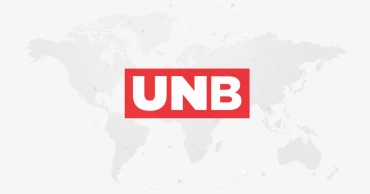
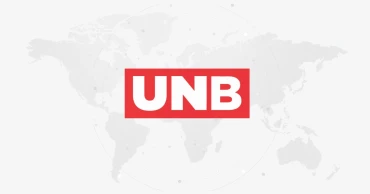

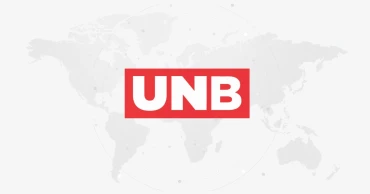
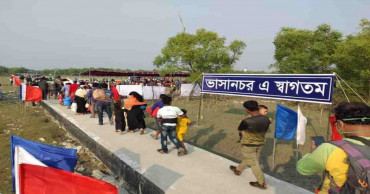
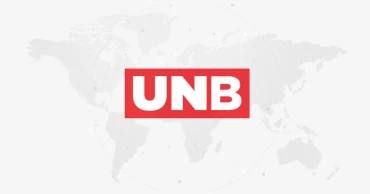
.jpg)
